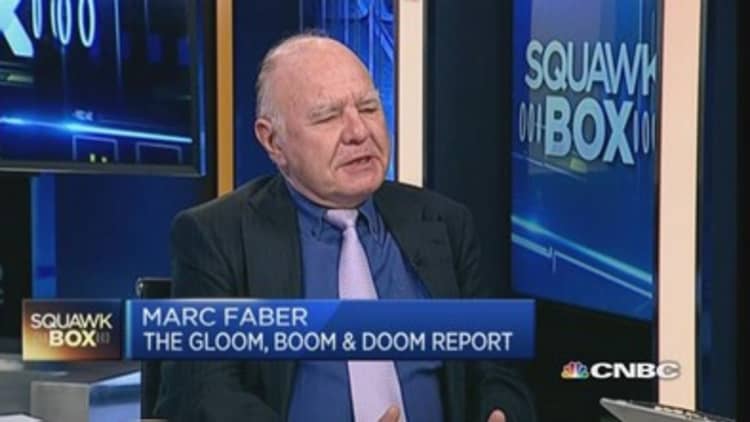Many investors believe the Federal Reserve will remove the word "patient" from its policy statement on Wednesday, paving the way for an interest rate hike as early as June, but analysts warn that a dovish surprise would send the sprawling.
"U.S. dollar long positions are at record levels and the currency markets have already priced in the removal [of word "patient" from its statement] and a rate hike in June," said National Australia Bank's co-head of FX Strategy Ray Attrill. "[If the Fed don't remove "patient"], the U.S. dollar could fall by one to two percent against major currencies such as the euro and Australian dollar."
While dollar declines would be swift, they shouldn't be unexpected given the greenback's recent run-up. The U.S. dollar index has risen around 25 percent since July 2014 as investors priced in an eventual Fed rate hike and amid the search for yield against a back drop of central bank easing around the world.
"Given the strength of the consensus and the record long positioning, a dovish surprise postponing the start of the tightening would necessarily trigger a squeeze," said Societe Generale Forex & Derivatives strategist Olivier Korber in a note published on Tuesday.
"Investors should hedge the tail risk that the Fed maintains the 'patience' wording, or worse, talks down the dollar," he said.
Almost certain
The majority of investors reckon the Fed will drop the word "patient" from its statement later today.
Some 86 percent of respondents surveyed by Barclays in a client poll expect the Fed to remove the term, according to a note published on Wednesday.
Where opinions diverge, however, is when interest rates will be hiked.

In March, the proportion of investors who believe the Fed will raise interest rates in the second-quarter rose to 34 percent from 28 percent in February, according to Bank of America Merrill Lynch's March Global Fund Manager Survey. Still, 41 percent of those surveyed believe the rate hike will come in the third quarter.
Lonely dissenters
But not everyone believes the Fed is in a rush to hike rates.
A combination of a sharply stronger U.S. dollar and a steep fall in commodity prices – crude oil in particular, which has fallen around 50 percent over the past year to six-year lows of $42.62 –is slowing inflation in the U.S., analysts say.
The annual inflation rate contracted 0.1 percent in January marking the first negative reading since October 2009.
Meanwhile, concerns about the effect the stronger dollar is having on the U.S. economy are increasing.
"Because of the strong dollar, I think the Fed will be reluctant to raise rates with massive easing in Japan, Europe and elsewhere. They don't want a strong dollar, which is negative for the U.S. economy," Marc Faber, editor & publisher of The Gloom, Boom & Doom Report, told CNBC on Wednesday.
But the dollar bulls disagree.
"The U.S. is a relatively closed economy, with trade accounting for only roughly 15 percent of [gross domestic product]; hence, the dollar appreciation effect on the economy is limited," according to the Barclays note.
The U.S. dollar was trading around 1.0604 euro, 0.7619 Australian dollars and 121.34 yen midday in Asia on Wednesday.

